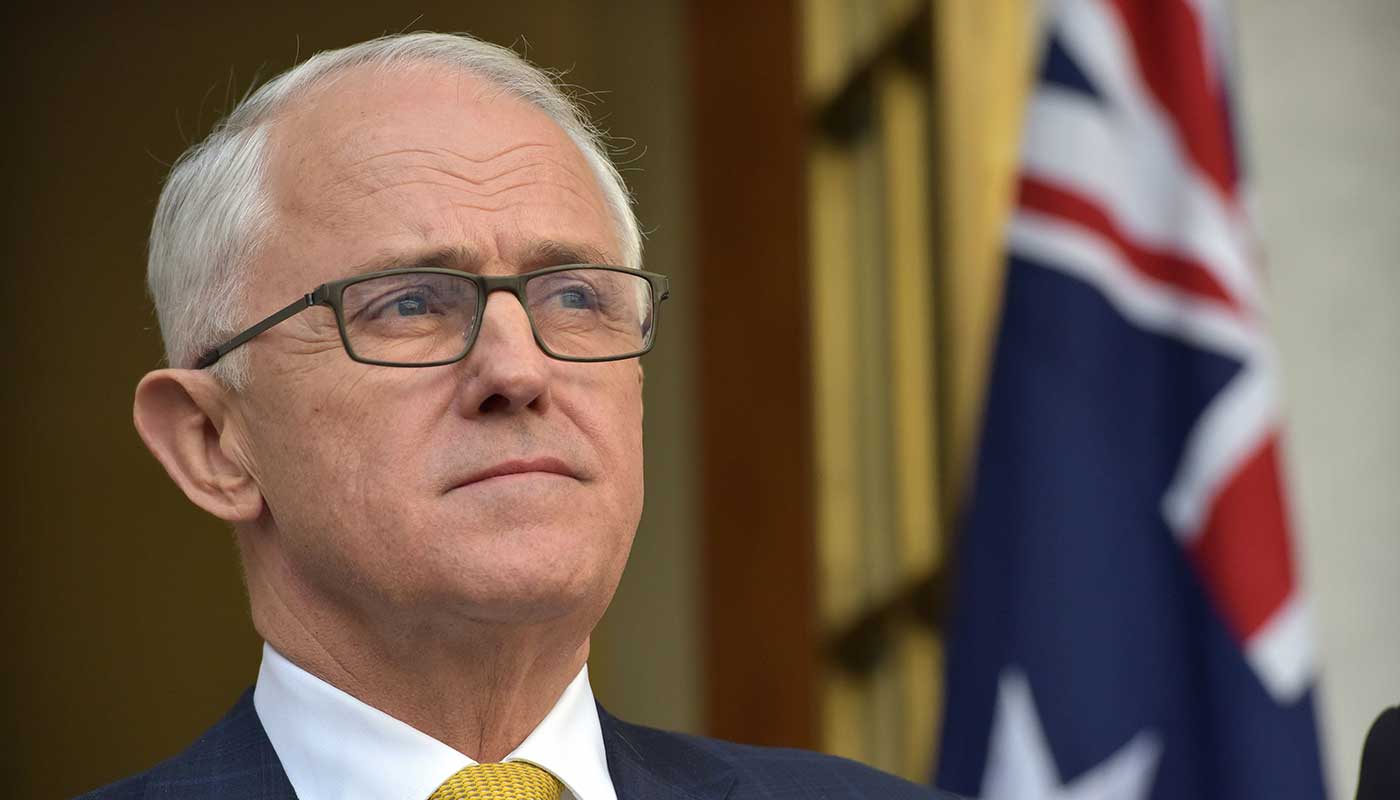Australian government shuts down parliament: what's going on?
Prime Minister Malcolm Turnbull flags intention to resign after internal party room revolt

A free daily email with the biggest news stories of the day – and the best features from TheWeek.com
You are now subscribed
Your newsletter sign-up was successful
The Australian government has taken the drastic step of closing down parliament in the midst of an internal leadership crisis that could potentially unseat Prime Minister Malcolm Turnbull.
The move comes days after an attempted leadership spill, led by former home affairs minister Peter Dutton, reportedly with the help of former prime minister Tony Abbott, who himself was ousted from leadership by Turnbull in 2016.
Turnbull faced the media following the adjournment of parliament, and indicated that he would call a party room meeting at midday (3am in the UK) on Friday.
The Week
Escape your echo chamber. Get the facts behind the news, plus analysis from multiple perspectives.

Sign up for The Week's Free Newsletters
From our morning news briefing to a weekly Good News Newsletter, get the best of The Week delivered directly to your inbox.
From our morning news briefing to a weekly Good News Newsletter, get the best of The Week delivered directly to your inbox.
“In terms of my own intentions, when the party room meeting is called, I will invite a spill motion to be moved. If the motion is carried, I will treat that as a vote of no confidence and I will not stand as a candidate in the ballot,” Turnbull said.
Turnbull also indicated that he would resign from parliament entirely, in the event he is removed from office.
Peter Dutton and treasurer Scott Morrison (a long-time supporter of Turnbull) have emerged as the most likely candidates to take over as prime minister, should Turnbull step aside tomorrow, the ABC says.
Complicating matters are two things. Dutton’s eligibility to sit in parliament is currently under a cloud over his family’s ownership of several childcare centres that have been receiving government funding, contrary to the Australian constitution.
A free daily email with the biggest news stories of the day – and the best features from TheWeek.com
Secondly, Dutton is facing a senate inquiry following “allegations concerning the inappropriate exercise of ministerial powers with respect to the visa status of au pairs”, The Guardian says.
-
 Political cartoons for February 19
Political cartoons for February 19Cartoons Thursday’s political cartoons include a suspicious package, a piece of the cake, and more
-
 The Gallivant: style and charm steps from Camber Sands
The Gallivant: style and charm steps from Camber SandsThe Week Recommends Nestled behind the dunes, this luxury hotel is a great place to hunker down and get cosy
-
 The President’s Cake: ‘sweet tragedy’ about a little girl on a baking mission in Iraq
The President’s Cake: ‘sweet tragedy’ about a little girl on a baking mission in IraqThe Week Recommends Charming debut from Hasan Hadi is filled with ‘vivid characters’
-
 Epstein files topple law CEO, roil UK government
Epstein files topple law CEO, roil UK governmentSpeed Read Peter Mandelson, Britain’s former ambassador to the US, is caught up in the scandal
-
 Iran and US prepare to meet after skirmishes
Iran and US prepare to meet after skirmishesSpeed Read The incident comes amid heightened tensions in the Middle East
-
 Israel retrieves final hostage’s body from Gaza
Israel retrieves final hostage’s body from GazaSpeed Read The 24-year-old police officer was killed during the initial Hamas attack
-
 China’s Xi targets top general in growing purge
China’s Xi targets top general in growing purgeSpeed Read Zhang Youxia is being investigated over ‘grave violations’ of the law
-
 Panama and Canada are negotiating over a crucial copper mine
Panama and Canada are negotiating over a crucial copper mineIn the Spotlight Panama is set to make a final decision on the mine this summer
-
 Why Greenland’s natural resources are nearly impossible to mine
Why Greenland’s natural resources are nearly impossible to mineThe Explainer The country’s natural landscape makes the task extremely difficult
-
 Iran cuts internet as protests escalate
Iran cuts internet as protests escalateSpeed Reada Government buildings across the country have been set on fire
-
 US nabs ‘shadow’ tanker claimed by Russia
US nabs ‘shadow’ tanker claimed by RussiaSpeed Read The ship was one of two vessels seized by the US military